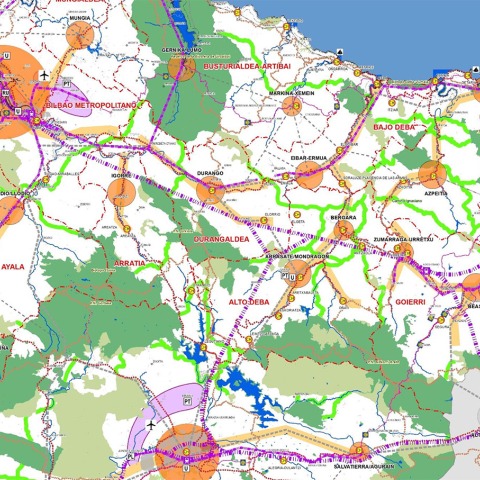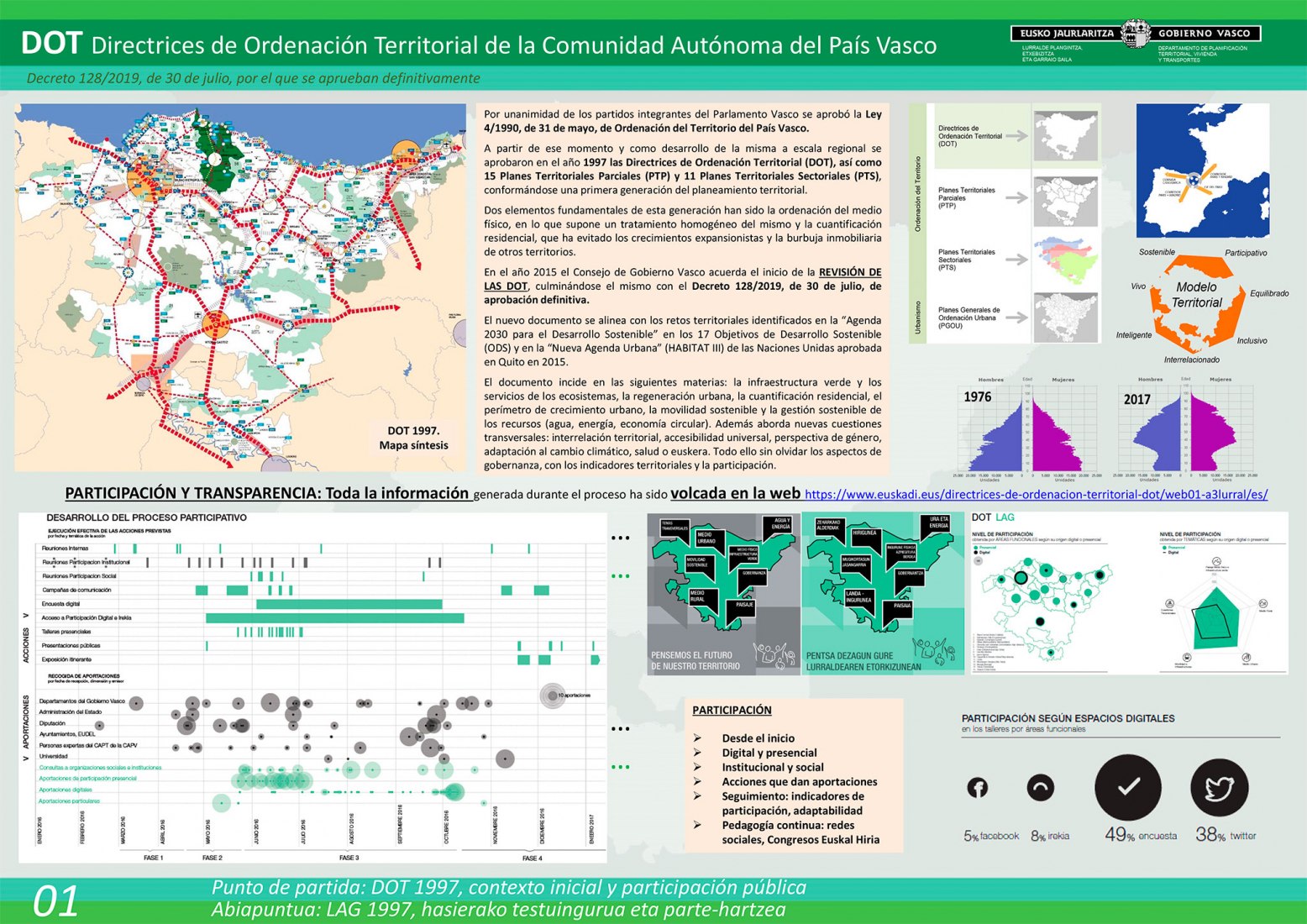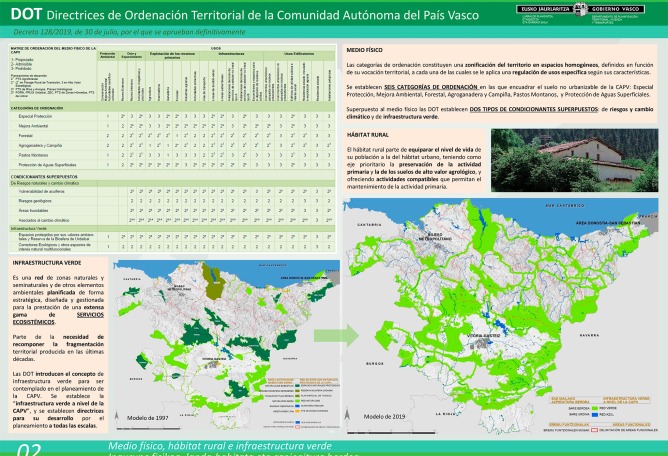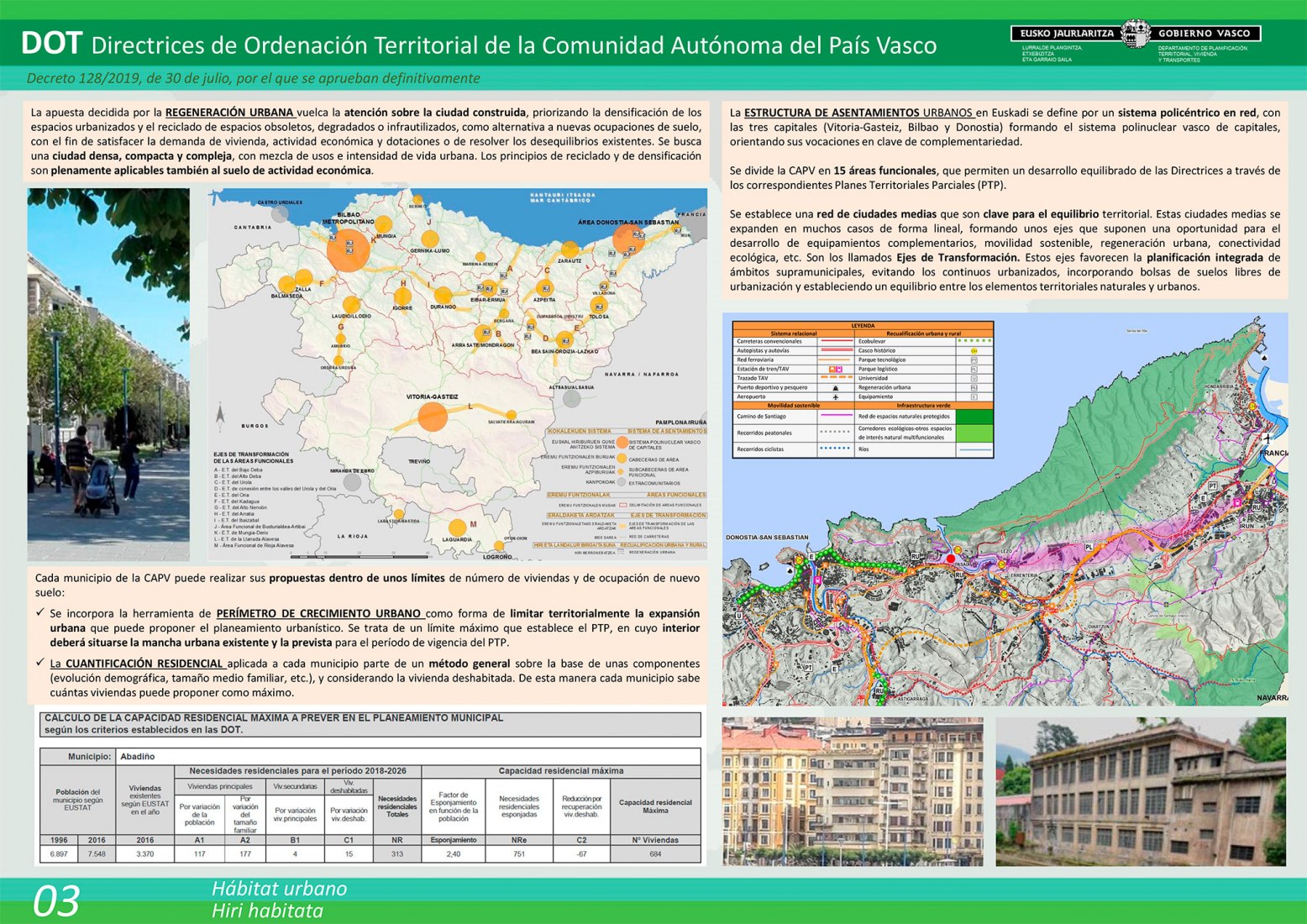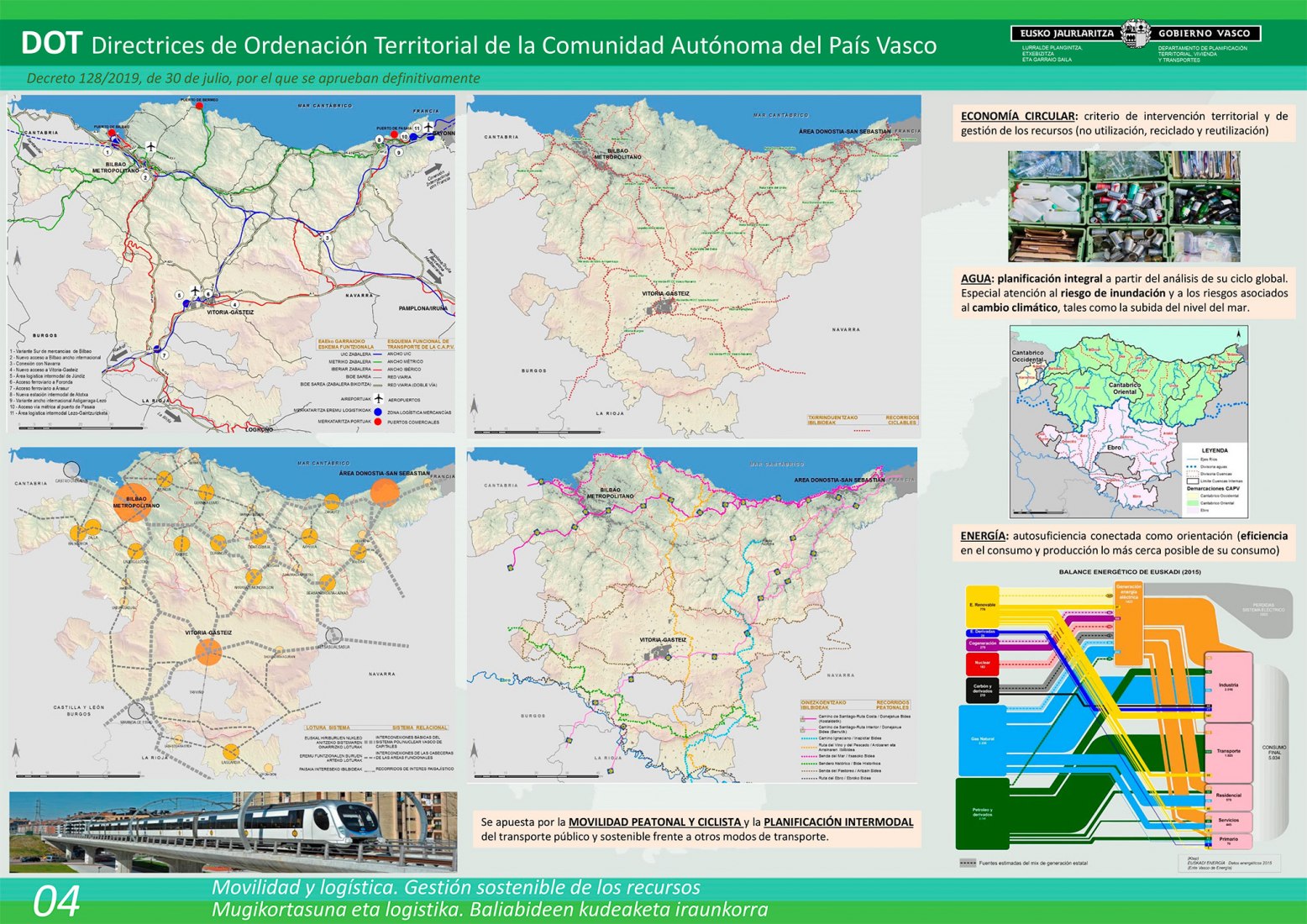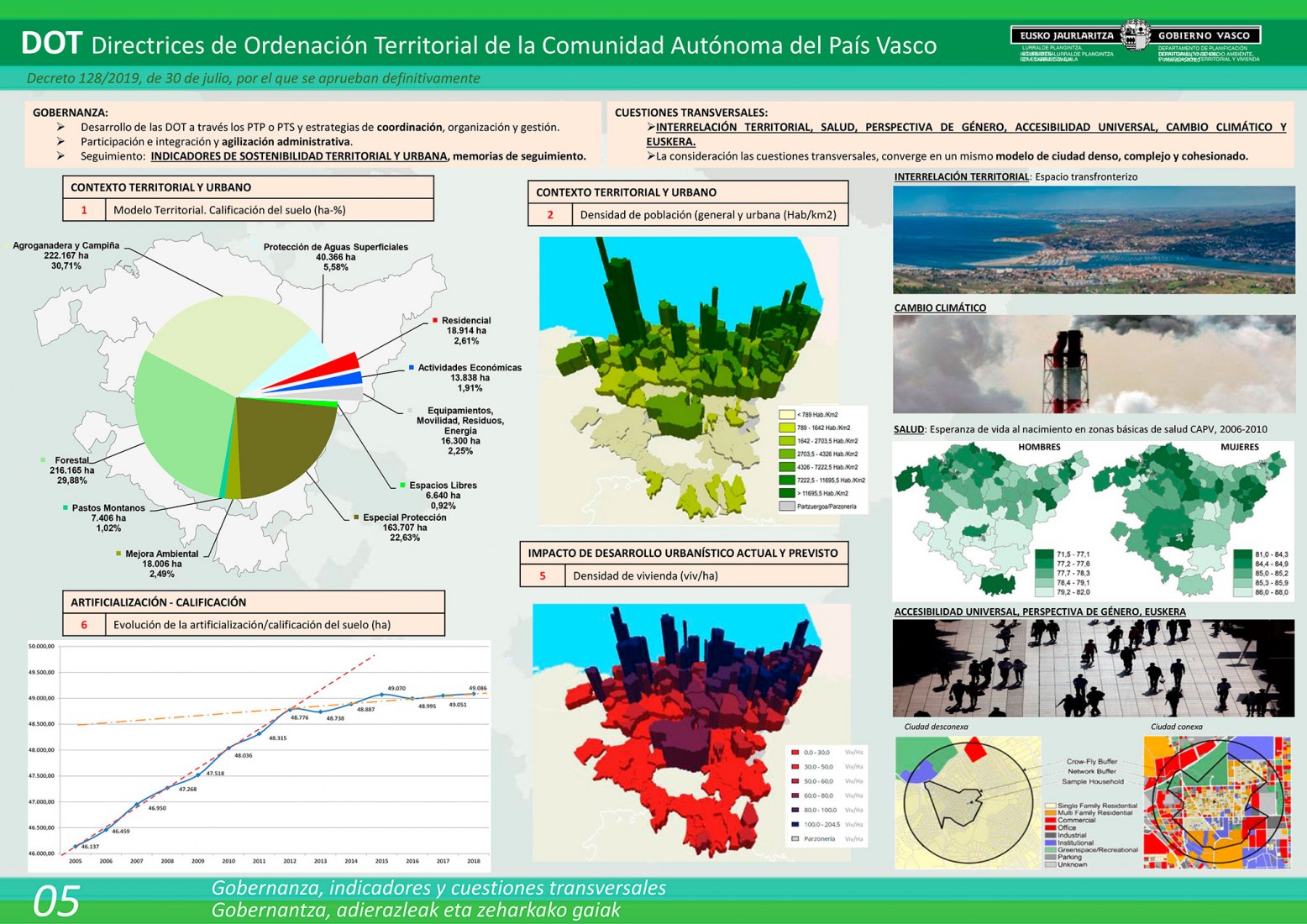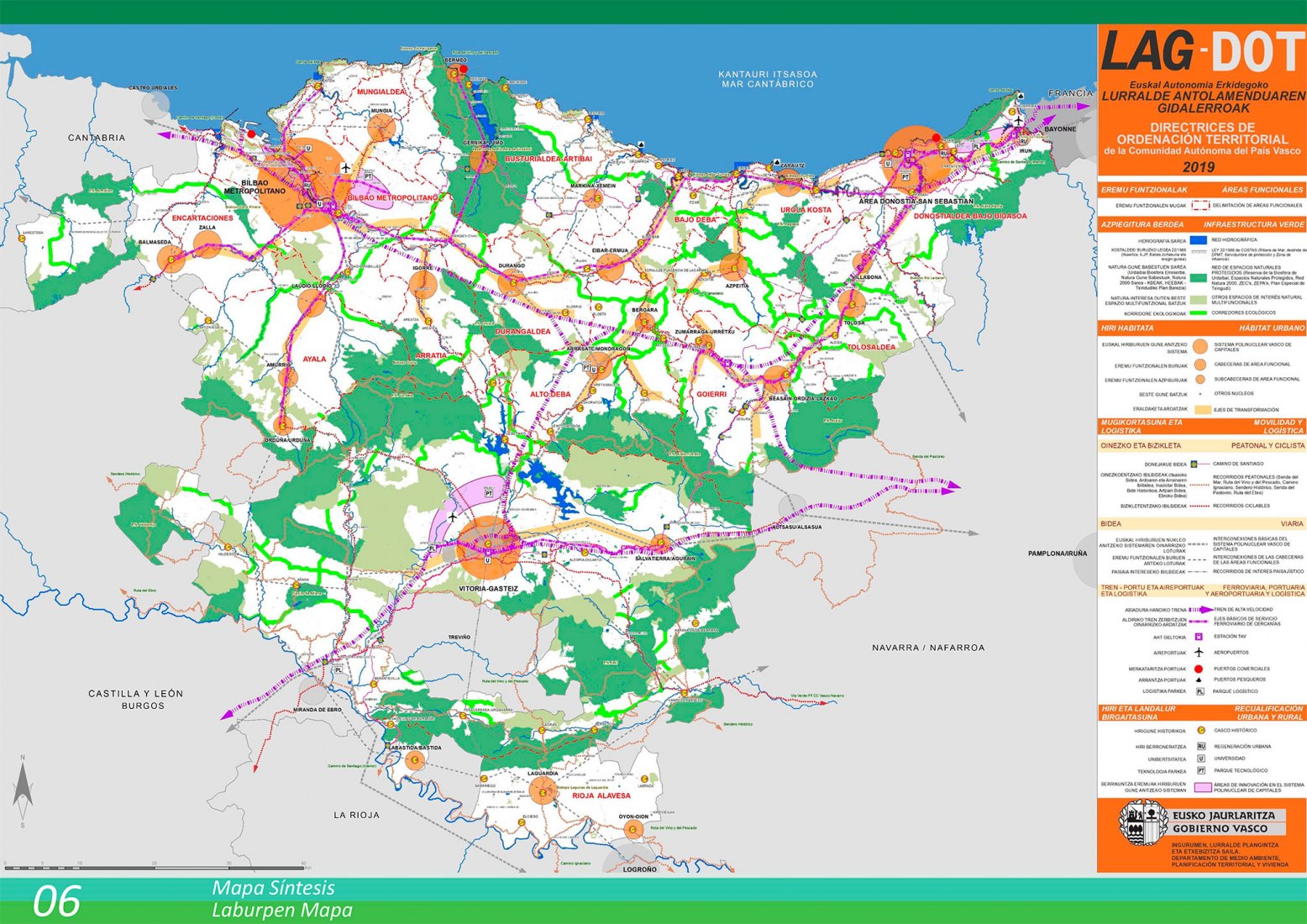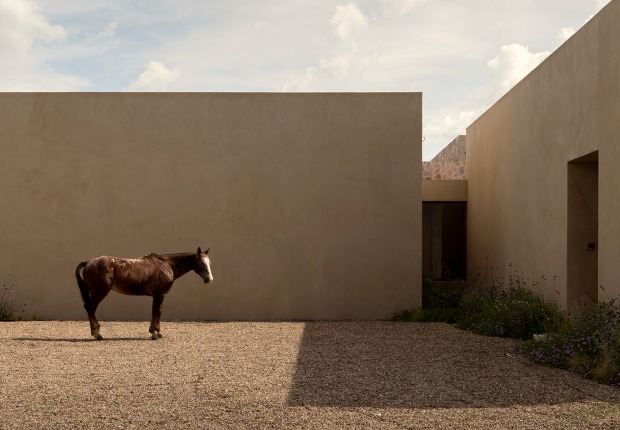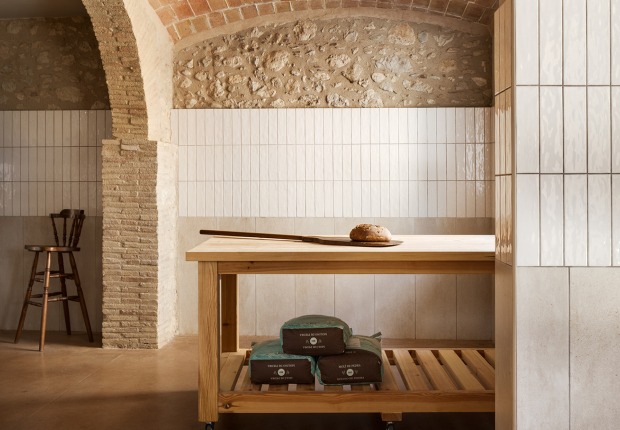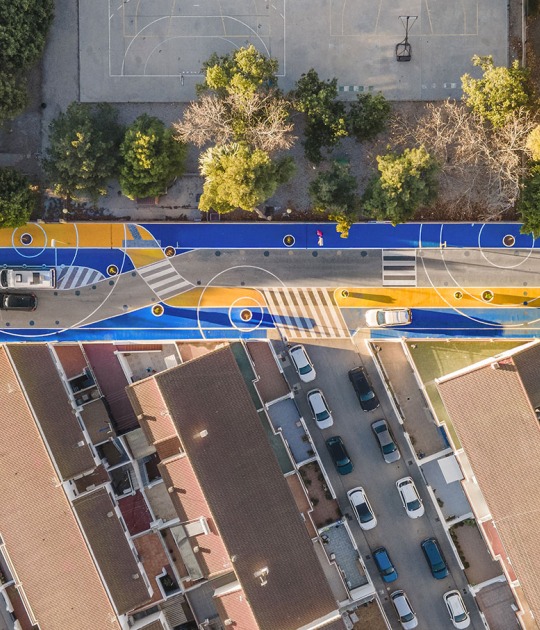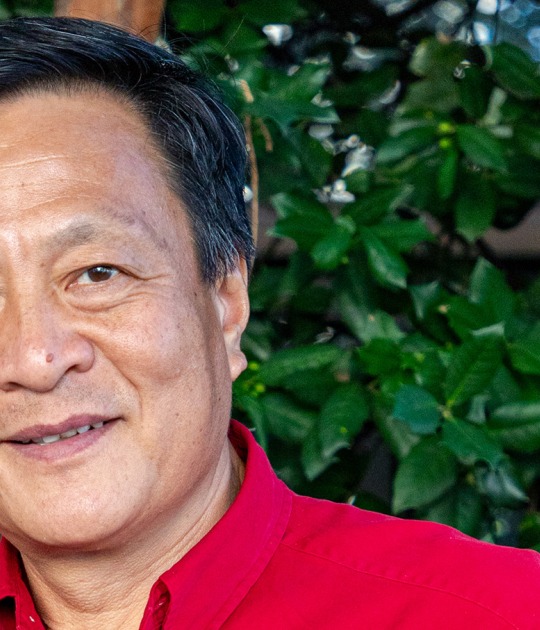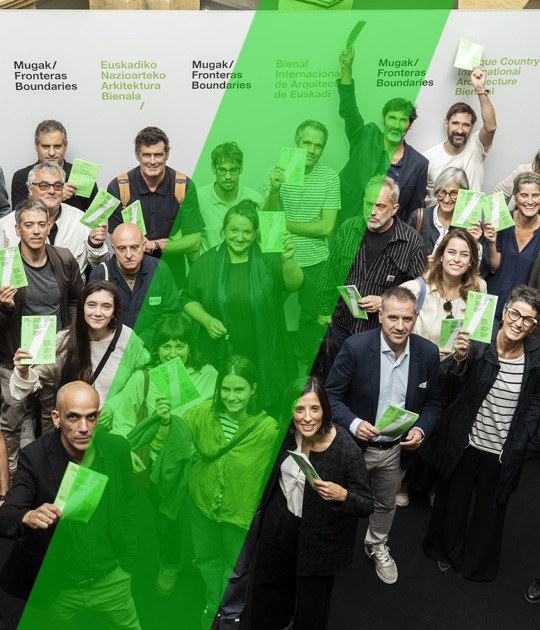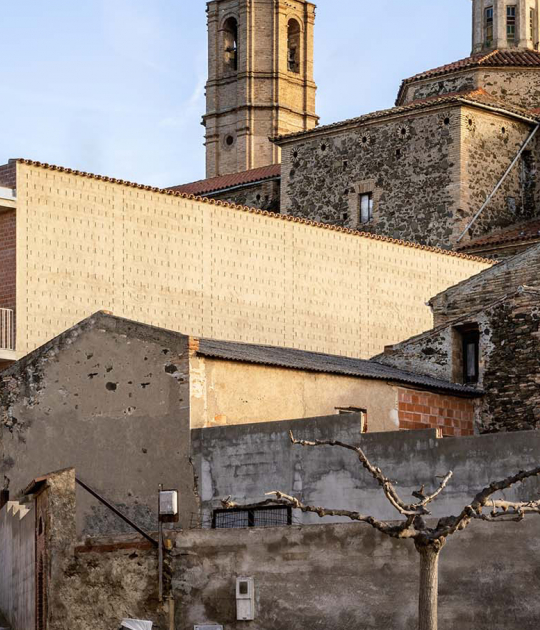Promoted by the Basque Government's Department of Territorial Planning, Housing and Transport, the Territorial Planning Guidelines were approved on July 30, 2019 by virtue of Decree 128/2019. Of these, its alignment with the territorial challenges identified in the 2030 Agenda and in the New Urban Agenda of the United Nations stands out, focusing on the following elements, among others:
- Green infrastructures, with a network of natural and semi-natural areas and other environmental elements strategically planned, designed and managed for the provision of a wide range of ecosystem services in order to rebuild the territorial fragmentation produced in recent decades;
- A firm commitment to urban regeneration, which focuses attention on the built city, prioritizing the densification of urbanized spaces and the recycling of those that have become obsolete to give rise to a dense, complex and cohesive city, capable of satisfying demand housing, economic activity and endowments or to resolve existing imbalances without the need to occupy new land;
- The urban growth perimeter tool is incorporated as a way of territorially limiting the urban expansion that urban planning may propose;
- Residential quantification so that each municipality calibrates how many homes it can propose at most based on components such as demographic evolution or average family size and considering uninhabited housing;
- Sustainable management of resources (water, energy, circular economy) and sustainable mobility, promoting journeys on foot or by bicycle and intermodal planning of public and sustainable transport compared to other mobility options.
- A firm commitment to urban regeneration, which focuses attention on the built city, prioritizing the densification of urbanized spaces and the recycling of those that have become obsolete to give rise to a dense, complex and cohesive city, capable of satisfying demand housing, economic activity and endowments or to resolve existing imbalances without the need to occupy new land;
- The urban growth perimeter tool is incorporated as a way of territorially limiting the urban expansion that urban planning may propose;
- Residential quantification so that each municipality calibrates how many homes it can propose at most based on components such as demographic evolution or average family size and considering uninhabited housing;
- Sustainable management of resources (water, energy, circular economy) and sustainable mobility, promoting journeys on foot or by bicycle and intermodal planning of public and sustainable transport compared to other mobility options.
In addition, new cross-cutting issues are addressed, such as territorial interrelation with the aim of equating the standard of living of the population living in rural areas with that of those living in cities. To do this, a network of medium-sized cities is established that are key to territorial balance, universal accessibility, integrating the gender perspective, adaptation to climate change and variables related to health and the Basque language, without forgetting governance aspects. , with territorial indicators and participation.
The objective of the new Territorial Planning Guidelines for the Basque Country is to achieve a more sustainable, participatory, balanced, inclusive, interrelated, intelligent and, ultimately, alive territorial model. In this sense, the Minister of Territorial Planning, Housing and Transport, Iñaki Arriola, highlights from the document: «Its main value lies in the fact that it is a collective work in which there has been an important institutional and citizen participation that has resulted in a document that has reached consensus in all Basque administrations ”.
The jury for the Urbanism Prize has been the president of the Union of Urban Architect Groups (UAAU), Javier Martínez Callejo, who has acted as president of the jury; the technical advisor of the Support Unit of the General Directorate of Urban Agenda and Architecture, Mari Ángeles Fernández Hernando; the urban architects José Seguí, Alfonso Vegara and Mar Santamaría (architect of the winning team in the previous edition), and the general deputy director of Urban Policies, Ángela de la Cruz.
